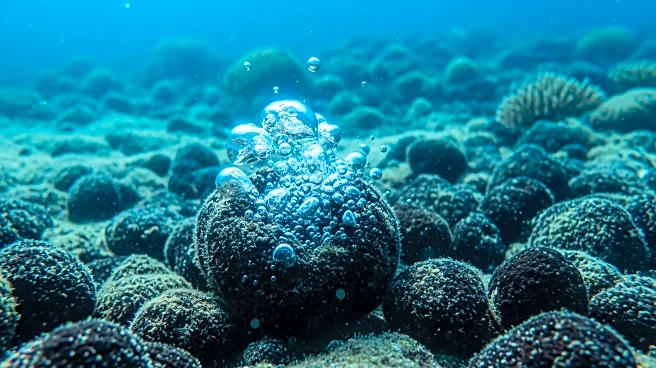What's Happening?
Scientists have discovered a stream of bubbles seeping from an underwater volcano in Papua New Guinea, composed almost entirely of carbon dioxide. This phenomenon is altering the composition of the surrounding water and reef, providing insights into how
reefs like Australia's Great Barrier Reef may transform by 2100 due to ocean acidification. The study predicts that increased carbon dioxide levels will lead to more algae and less complex coral structures, impacting marine life and the tourism industry dependent on these ecosystems.
Why It's Important?
The discovery of carbon dioxide bubbles from an underwater volcano serves as a natural laboratory for understanding the impacts of ocean acidification on coral reefs. As carbon dioxide levels rise, reefs are expected to undergo significant changes, affecting biodiversity and the structural complexity of coral habitats. This has implications for coastal communities reliant on reefs for tourism and fishing, highlighting the urgent need for climate action to mitigate these effects. The study underscores the broader impact of climate change on both natural environments and human societies.

















